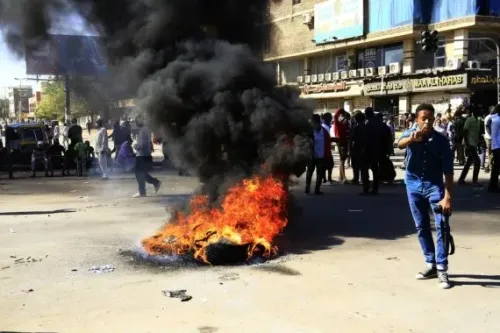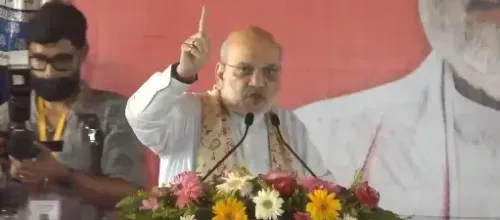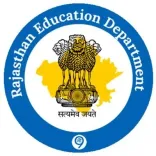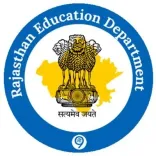Is Bangladesh's Awami League Correct in Accusing the Anti-Corruption Commission of Political Manipulation?
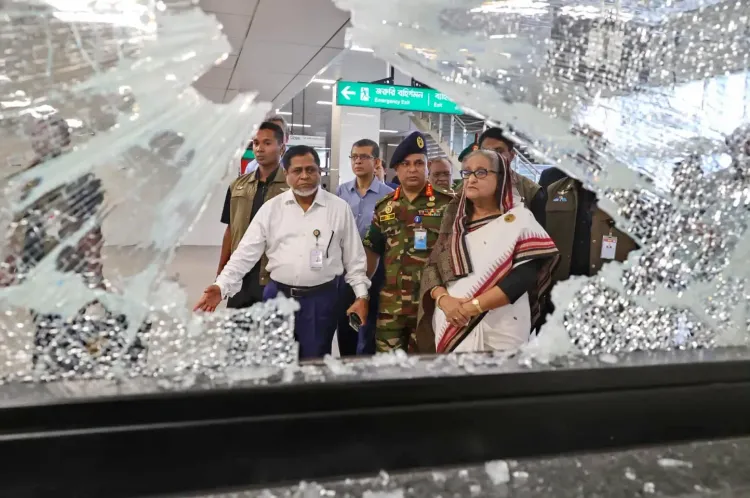
Synopsis
Key Takeaways
- The Awami League claims that the ACC is politicizing legal proceedings against Sheikh Hasina.
- Allegations suggest a calculated effort to undermine Hasina’s legacy.
- The 'Red Notice Game' is seen as a strategy for public perception rather than justice.
- Interpol notices require credible evidence, which the party argues is lacking.
- The legal process is perceived as a spectacle rather than a fair trial.
Dhaka, Sep 8 (NationPress) The Awami League of Bangladesh has leveled serious accusations against the nation’s Anti-Corruption Commission (ACC), claiming that it has weaponized legal proceedings to target former Prime Minister Sheikh Hasina and her family, aiming to sway public opinion.
The party contends that such actions are part of a larger strategy designed to tarnish Hasina’s legacy and undermine her family’s standing within the country.
"Every few days, a new headline appears: yet another case filed, another sensational allegation, another press briefing from the Anti-Corruption Commission. Sheikh Hasina, along with her children, Sajeeb Wazed Joy and Saima Wazed Putul, as well as extended family members like her sister Sheikh Rehana and her children, have become targets of what seems more like a meticulously planned campaign than a pursuit of justice," the Awami League asserted.
Criticizing the interim government led by Mohammad Yunus, the party claimed that both the Yunus administration and the ACC have transformed Hasina’s legal challenges into a public spectacle.
"This orchestrated drama plays out like a political thriller. Each development is broadcast, analyzed, and sensationalized, with leaked ‘exclusive findings’ and official statements ensuring that Hasina's reputation is tarnished in the public eye long before any formal verdict," they added.
As per the Awami League, amid ongoing court cases and heightened media scrutiny, the ACC has ramped up its efforts with the so-called 'Red Notice Game', which they argue is more about optics than justice.
However, the party emphasized that the legal framework governing Interpol notices is clear: they do not equate to arrest warrants and necessitate credible evidence of prosecutable offenses. They noted that many countries, including India and the UK, are unlikely to act on politically motivated charges.
The Awami League categorized the ACC's pursuit of a red notice as symbolic theatre, asserting that it serves primarily as a means of intimidation and harassment, casting a shadow over Hasina’s family’s freedom internationally, rather than a legitimate move towards accountability.
"In this calculated performance, the Red Notice becomes a tool for controlling the narrative, painting Hasina’s family as the faces of alleged corruption, while the real story—the absence of credible, independently verified evidence—remains conveniently hidden. It is politics disguised as law, a high-stakes game where perceptions are manipulated and reputations are dragged through the mud long before the truth emerges," the Awami League highlighted.
The party argued that in Bangladesh, the legal proceedings against Hasina, her son Sajeeb Wazed, and her daughter Sayma Wazed Putul have devolved into a public spectacle rather than a fair trial.
Referring to the accusations against Hasina’s family in the Purbachal plot case, the party noted that witnesses have testified for over an hour, presenting accusations of influence and corruption, while the accused remain thousands of miles away, without the ability to defend themselves or challenge any claims.


